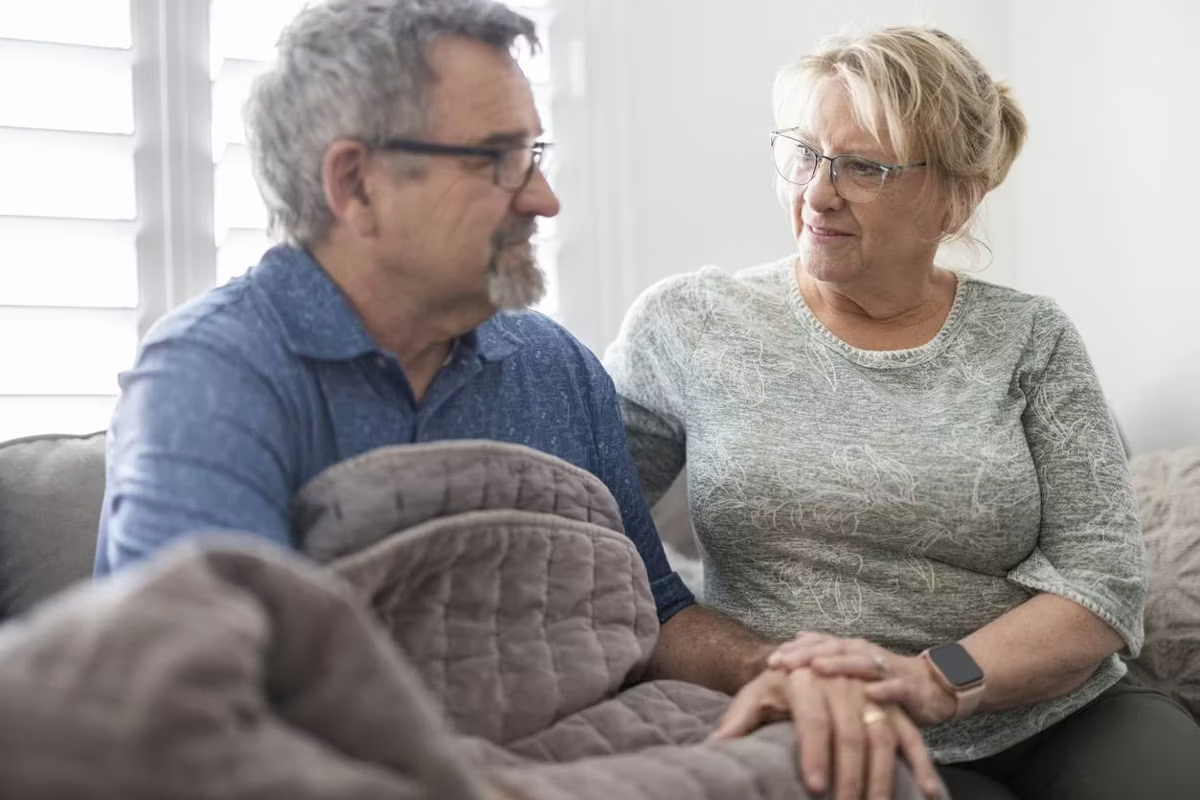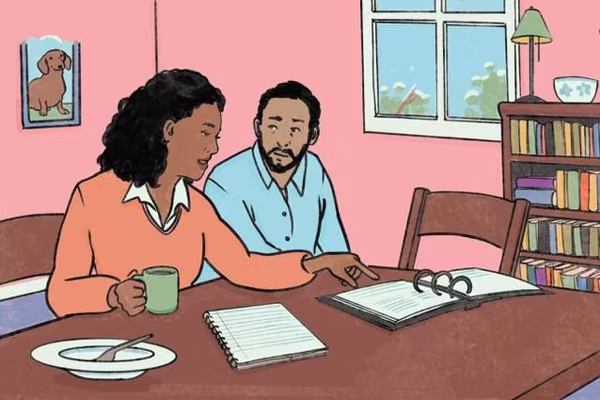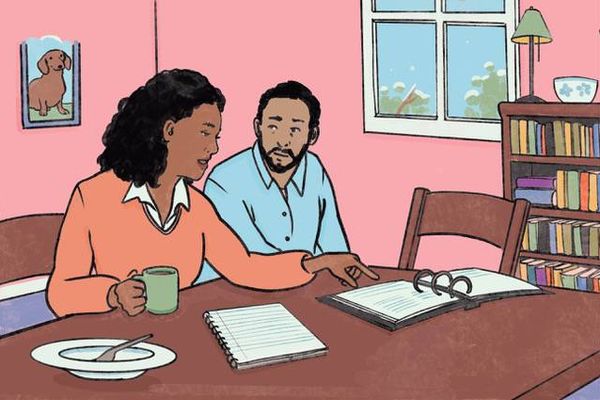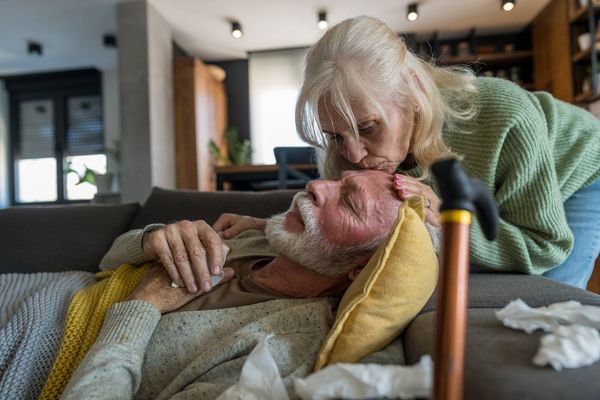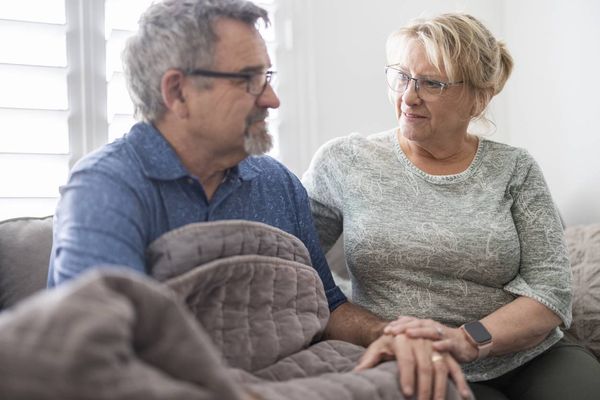November is National Family Caregivers Month.
Shay Greenwood, a wife and mother of five children, said she was exhausted and developing a pretty big chip on her shoulder. “I did everything for everyone,” said Greenwood. “I was depleted.”
When her husband’s back problems worsened, she didn’t have the time or capacity that day to take him to the hospital for an MRI and other tests. “I thought he was just going to be told he needed back surgery,” Greenwood recalled. But at that appointment, her husband was diagnosed with stage 4 prostate cancer that had spread to his spine. “The chip on my shoulder went away just like that,” she recalled. “Suddenly, nothing else mattered.”
Greenwood threw herself into caregiving as her husband underwent 25 rounds of radiation to his spine and then started chemotherapy. “A friend came to the hospital and told me I needed to take care of myself because I could get sick too,” said Greenwood. “I didn’t understand that initially, that if I didn’t take care of myself, I couldn’t take care of anyone else.”
Greenwood turned to her faith and her community to help her family during her husband’s treatments, which resulted in his cancer’s remission. “It’s very humbling having to ask for help,” said Greenwood. “But you can’t walk this journey in isolation.”
The prostate, a small gland that sits below the bladder, makes semen. Prostate cancer is one of the most common types of cancer in men, and the risk increases with age.
Psychologist Marni Amsellem, Ph.D., said teamwork is key during treatment. “Recognize from the get-go this can take a toll on everybody who cares deeply about the patient,” said Amsellem. “Sometimes women will assume the role of caregiving but not accept the label.” This can be risky to their mental health. “Any health crisis is going to impact daily life, and it’s cumulative. The intensity of what’s going on may change, but it’s OK to recognize this is a disruption.”
Disruptions are going to make life messy, said Vanessa Walker, patient advocate and founding leader of Women’s Health Advocates. Walker advises caregivers to create an environment where it’s OK for things to be complicated and uncomfortable. “You’re as angry at cancer as they are,” said Walker. “Allow yourself to not do it the best way at first. Getting it done is better than getting it 100% right. Find ways of being OK with that. You don’t learn to be an advocate or care partner overnight. You learn to care by caring, help by helping, advocate by advocating.”
Depending on the cancer’s stage and treatment, caregiving can become all-consuming, said psychiatrist Nicole Christian-Brathwaite, M.D. Caregivers often struggle with the guilt of stepping away, especially when helping with difficult side effects like urinary incontinence, bowel problems or erectile dysfunction, according to Christian-Brathwaite. Treatment side effects can significantly impact self-esteem issues, and when the ego gets involved, there’s bound to be frustration.
Christian-Brathwaite recommends seeking immediate help if caregivers are noticing signs of burnout like fatigue, disrupted sleep, poor frustration tolerance, lowered work productivity and performance, and, especially, depressive and unsafe thoughts.
Therapy can help caregivers set boundaries and prioritize, ensuring caregiving becomes part, but not all, of life. Also, Christian-Brathwaite added, “Exercise is really important. It sounds like a small thing, but it’s so important.”
Although caregivers may cringe at the word “self-care” or dismiss it as a low priority, Amsellem, Walker and Christian-Brathwaite all ranked it as the best way caregivers can support their partners through prostate cancer. “Self-care is selfless,” said Christian-Brathwaite.
“It seems counterintuitive, but if you don’t figure out how to incorporate self-care — whether you like that word or not — you will burn out and it will impact the person you love,” said Walker.
Self-care doesn’t have to mean spa treatments. “You may not even know what self-care means for you,” said Walker. But caregiving for a partner with prostate cancer means “you need to start thinking about your own self-care equation. Taking someone else’s routine doesn’t work, and what works for you today may not work for you tomorrow. Ask yourself, ‘What do I need today that will help me show up for myself and the people I love?’ Keep it simple. Maybe it’s 10 minutes outside in a chair with the sun on my face. Maybe it’s a shower or a glass of wine. Tomorrow it may be different.”
You don’t have to do it alone. “Ask for help,” said Walker. “If you can afford a therapist, great. Or rely on your friends, faith community or medical team. Asking for help is one of the strongest things we can do for ourselves. Women aren’t always great at that, but when we ask for help we’re modeling that healthy behavior for our families too.”
Amsellem highly recommends seeking peer support with other caregivers. “A lot of people don’t even recognize how impactful it is, knowing you’re not alone,” said Amsellem. She recommended caregivers approach their medical team for local resources and search online for national support networks.
Acknowledging the grief prostate cancer causes can be a powerful form of self-care. “It takes a lot of energy to avoid grief,” said Walker. “You and your partner are grieving the life you once had. Life will never be the same. Allow yourself the space and grace to acknowledge that. Self-care is about doing what you can do, not ruminating over what you can’t do. Caregiving is hard, and cancer sucks. Be kind to yourself, and look in the direction of hope, even if it’s over the horizon today.”
Resources
This educational resource was created with support from Bayer and Merck.- Caregivers Need Self Care, Too ›
- How Becoming My Husband’s Caregiver in My 30s Changed My Life ›
- Have a Male Partner? Here’s What You Need to Know About Prostate Cancer ›
- My Husband’s Prostate Cancer Is Terminal, but that Hasn’t Put an End to Our Love for Each Other ›
- Encouraging Your Partner to Get Screened for Prostate Cancer ›
- Supporting a Loved One with Prostate Cancer - HealthyWomen ›

